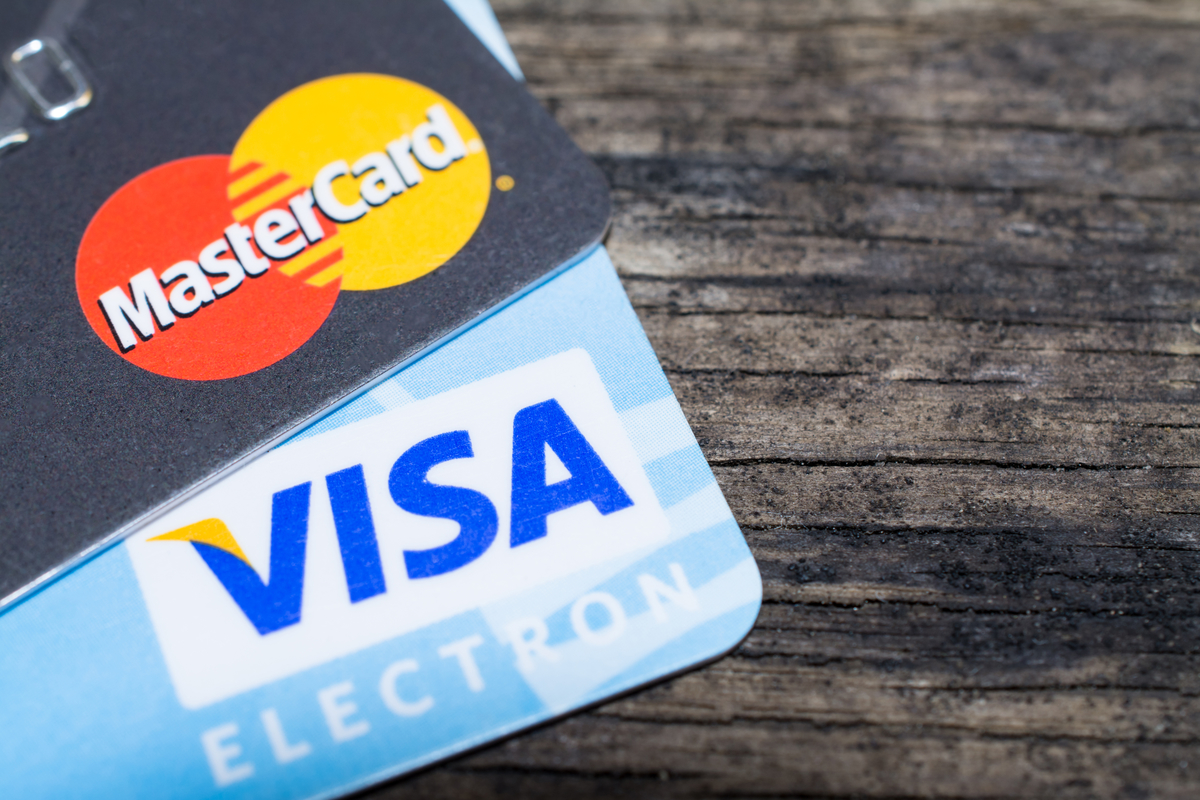Dear visitor,
You're reading 1 of your 3 free news articles this quarter
Register with us for free to get unlimited news, dedicated newsletters, and access to 5 exclusive Premium articles designed to help you stay in the know.
Join the UK's leading credit and lending community in less than 60 seconds.
Sanctions update: Visa and Mastercard suspend service in Russia
Visa and Mastercard will cut off transactions in Russia, in response to its invasion of Ukraine, the companies announced on March 5.

Senior Journalist, covering the Credit Strategy and FSE News brands.
The move comes as Ukrainian president Volodymyr Zelensky urged financial companies to impose further sanctions.
Cards issued in Russia will not work abroad, and foreign-issued cards in Russia will also no longer work.
Alfred Kelly, chairman and chief executive of Visa, said transactions would be cut off “over the coming days”, citing “Russia’s unprovoked invasion of Ukraine” as responsible for the suspension of service.
“This war and the ongoing threat to peace and stability demand we respond in line with our values,” he said.
Mastercard imposed a similar ban, stating that cards provided by Russian banks will not be supported by its network. Mastercard credit cards will not function at Russian merchants or ATMs.
Mastercard said: “We don’t take this decision lightly. Mastercard has operated in Russia for more than 25 years.
“We have nearly 200 colleagues there who make this company so critical to many stakeholders.
“As we take these steps, we will continue to focus on their safety and wellbeing, including continuing to provide pay and benefits”.
However, Mir, Russia’s state-backed payments network, has said that Mastercard and Visa cards will still process domestic transactions in Russia.
Mir, which is 100% owned by Russia’s central bank, has processed the majority of domestic payments in Russia since 2015. The Russian government established the operator in 2014, to defend against economic sanctions imposed as a result of Moscow’s annexation of Crimea.
“All cards of these payment systems already issued by Russian banks will continue to work within our country as before,” Mir’s operator said.
“Payments abroad, including on foreign internet resources, will not be available with Visa and Mastercard international payment systems cards issued by Russian banks,” Mir confirmed.
As a result, Mir said it already had seen a surge in demand for its cards – raising concerns that sanctions will result in Russia’s investing in alternative financial schemes.
West-imposed sanctions so far
On Sunday 6 March, American Express also confirmed it was suspending all operations in Russia and Belarus “in light of Russia’s ongoing, unjustified attack on the people of Ukraine”.
On Wednesday 2 March PayPal was no longer accepting new customers in Russia. On Saturday 5 March, PayPal enhanced their block by suspending its services – primarily customers transferring money to each other.
While, in a joint statement on 26 February, the US, UK, EU and Canada said they intend to: “Impose restrictive measures that will prevent the Russian Central Bank from deploying its international reserves in ways that undermine the impact of our sanctions”.
The EU removed seven Russian banks from the Swift international payments system, and the US cut off Sberbank – Russia’s biggest bank – and 25 subsidiaries from the US financial system.
Alfa-Bank and Bank Otkritie face an EU ban on issuing bonds, shares or loans in the EU for refinancing, and the US has enforced debt and equity restrictions on Alfa-Bank, with full blocking sanctions placed on Otkritie. Canada has imposed an asset freeze and dealings ban on both.
Rossiya Bank and Promsvyazbank have undergone asset freezes, imposed by the EU, UK, Switzerland and Japan. The US has further imposed full blocking sanctions on Promsvyazbank, Sovcombank and Novikombank, and have put debt and equity restrictions on Russian Agricultural Bank, Credit Bank of Moscow and Gazprombank.
GenBank and Black Sea Bank for Development and Reconstruction are suffering sanctions from the UK and Canada, with Is Bank on the UK list too.
The US has imposed sanctions on two state-owned banks – Belinvestbank and Bank Dabrabyt.
The UK are restricting wealthy Russians to a £50,000 bank account limit, and are enforcing measures to prevent Russian companies from issuing transferable securities and money market instruments in the UK.
However, backbench MPs are concerned that oligarchs could liquidate £15.bn in assets before the new laws take effect. Emergency legislation is being introduced to parliament today (7 March) to make it easier to impose restrictions more swiftly.
Targeting individuals
Initial sanctions targeted Russian financial services institutions. More recently, Western powers have inflicted restrictions such as travel bans and frozen assets on oligarchs directly aligned with Putin.
"The United States and governments all over the world will work to identify and freeze the assets Russian elites and their family members hold in our respective jurisdictions – their yachts, luxury apartments, money, and other ill-gotten gains," the White House said on 2 March.
Eight people connected with Putin have been affected, including Kremlin press secretary Dmitry Peskov, and Margarita Simonyan, head of television network RT. A further 19 oligarchs (and 47 of their family members and close associates) have been hit with visa restrictions.
However, Russia is a major exporter of crude oil, providing approximately 40% of the EU’s supply. Western sanctions have seen crude oil prices rocket to over $105 (£79.81) a barrel for the first time in eight years, with fears of soaring fuel costs rising.
Stay up-to-date with the latest articles from the Credit Strategy team
Get the latest industry news





